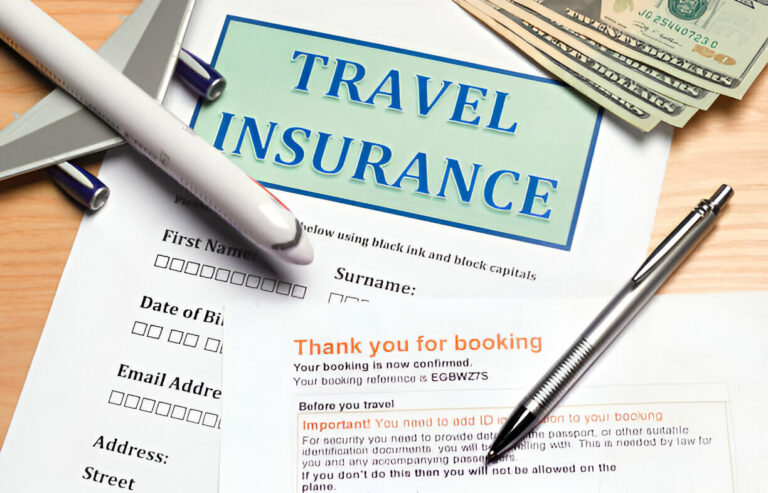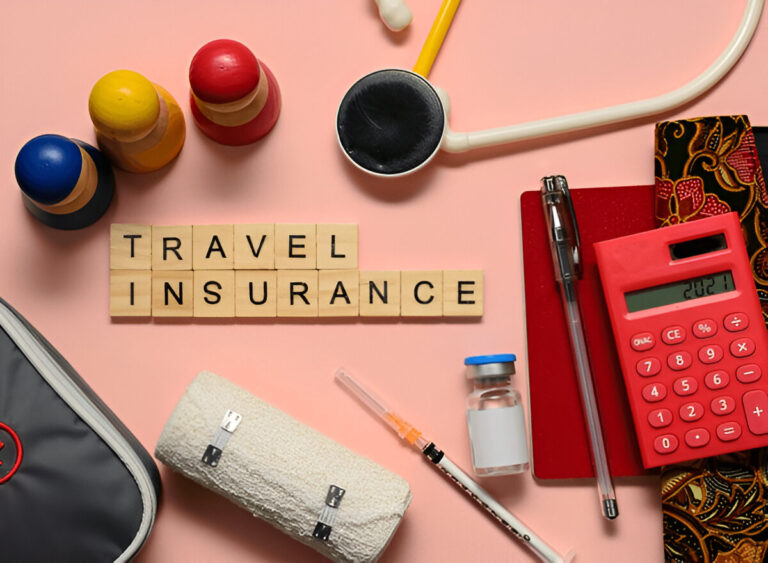South Korea Study Visa for Immigrants – Visa Sponsorship in South Korea
Moving to a new country to pursue higher education is a significant step that can shape your future. South Korea, with its world-class universities, vibrant culture, and advanced technology, has become an increasingly popular destination for international students.
The South Korea Study Visa, officially known as the D-2 Visa, is designed for individuals who wish to pursue higher education in South Korea. This visa allows international students to enroll in undergraduate, graduate, and doctoral programs at recognized South Korean institutions. Additionally, the D-2 Visa permits students to engage in part-time work, enhancing their educational experience.
Types of Study Visas
South Korea offers several subcategories under the D-2 Visa, each catering to different educational pursuits:
- D-2-1 Visa: For full-time undergraduate and graduate students.
- D-2-2 Visa: For part-time students or those enrolled in short-term courses.
- D-2-3 Visa: For research scholars and doctoral candidates.
Understanding the specific subcategory that aligns with your educational goals is essential for a successful application.
Eligibility Criteria for the Study Visa
To qualify for a South Korea Study Visa, applicants must meet the following general requirements:
Academic Requirements
- Admission Letter: Official acceptance from a recognized South Korean educational institution.
- Academic Records: Transcripts and certificates from previous educational institutions.
- Language Proficiency: Proof of proficiency in Korean (TOPIK) or English (TOEFL, IELTS), depending on the language of instruction.
Financial Requirements
- Proof of Funds: Evidence of sufficient financial resources to cover tuition fees, living expenses, and other costs during your stay.
- Scholarships: Documentation of scholarships or financial aid, if applicable.
Health and Character Requirements
- Health Insurance: Proof of health insurance coverage valid for the duration of the stay.
- No Criminal Record: Police clearance certificate may be required to prove that you have no criminal history.
The Role of Visa Sponsorship
Visa sponsorship is a pivotal aspect of the Study Visa application process. It involves the educational institution or a designated sponsor in South Korea taking responsibility for the applicant’s stay.
Responsibilities of the Sponsor
- Providing Documentation: Sponsors must provide necessary documentation, including the admission letter and financial support evidence.
- Financial Support: Ensuring the applicant has adequate financial resources, especially if scholarships or grants are involved.
- Assistance During Stay: Offering support in case of emergencies or changes in the applicant’s circumstances.
Benefits of Having a Sponsor
- Enhanced Credibility: Sponsorship by a reputable institution increases the likelihood of visa approval.
- Support System: Access to resources and assistance during the academic journey in South Korea.
Step-by-Step Application Process
Navigating the visa application process requires careful planning and adherence to guidelines. Here’s a detailed step-by-step guide:
Step 1: Secure Admission to a South Korean Institution
- Apply: Submit applications to desired universities or colleges.
- Acceptance: Obtain an official admission letter upon acceptance.
Step 2: Gather Required Documentation
- Valid Passport: Must be valid for at least six months beyond your intended stay.
- Completed Application Form: Accurately filled out visa application form.
- Photograph: Recent passport-sized photograph adhering to South Korean visa photo specifications.
- Admission Letter: Official acceptance from the educational institution.
- Academic Records: Transcripts and certificates from previous institutions.
- Proof of Language Proficiency: Certificates like TOPIK, TOEFL, or IELTS.
- Financial Documents: Bank statements, employment contracts, or scholarship letters.
- Health Insurance Proof: Valid health insurance coverage.
- Police Clearance Certificate: If required.
Step 3: Complete the Visa Application Form
- Accuracy: Ensure all information is correct and matches the supporting documents.
- Consistency: Avoid discrepancies between the application form and supporting documents.
Step 4: Submit the Application
- Where to Submit: Submit at the nearest South Korean embassy or consulate.
- Online Submission: Some categories may allow for online applications.
- In-Person Submission: Visit the embassy or consulate to submit your application in person.
Step 5: Pay the Visa Fee
- Fees: Vary based on visa category and processing speed.
- Payment: Pay through the accepted methods at the embassy or consulate.
Step 6: Attend an Interview (If Required)
- Preparation: Be ready to discuss your educational plans and intentions.
- Documentation: Bring all necessary documents to the interview.
Step 7: Wait for Processing
- Timeframe: Typically ranges from 4 to 8 weeks.
- Tracking: Track your application status through the embassy or consulate website.
Step 8: Receive Your Visa
- Approval: Your visa will be stamped in your passport upon approval.
- Verification: Ensure all details are correct, including validity dates and visa type.
Step 9: Plan Your Travel
- Accommodation: Arrange housing in South Korea.
- Travel Arrangements: Book flights and prepare for your move.
Common Mistakes to Avoid
Avoiding common pitfalls can significantly enhance your chances of a successful visa application:
1. Incomplete Documentation
- Checklist: Use a comprehensive checklist to ensure all required documents are submitted.
- Double-Check: Verify that all documents are complete and accurate before submission.
2. Inaccurate Information
- Consistency: Ensure all information provided is truthful and consistent across all documents.
- Avoid Discrepancies: Discrepancies can raise red flags and lead to delays or rejections.
3. Missing Deadlines
- Early Application: Start the application process early to avoid missing deadlines.
- Timely Submission: Ensure that all documents are submitted within the required timeframe.
4. Underestimating Financial Requirements
- Accurate Assessment: Accurately assess your financial needs based on your program and living costs.
- Comprehensive Proof: Provide thorough proof of funds or scholarships to demonstrate financial capability.
5. Ignoring Language Proficiency
- Meeting Requirements: Ensure you meet the language proficiency requirements for your program.
- Preparation: Prepare and pass the necessary language proficiency tests in advance.
Tips for a Successful Visa Application
Maximize your chances of approval by following these essential tips:
1. Start Early
- Timeline: Begin the application process well in advance of your intended start date.
- Preparation: Allow ample time for gathering documents and completing the application.
2. Seek Professional Assistance
- Consult Experts: Consider consulting with an immigration lawyer or visa agency for guidance.
- Avoid Errors: Professional assistance can help avoid common mistakes and streamline the process.
3. Maintain Organized Records
- Documentation: Keep all your documents, receipts, and correspondence well-organized.
- Accessibility: Easily accessible records facilitate the application process and any future needs.
4. Be Honest and Transparent
- Truthfulness: Provide truthful information in your application and during interviews.
- Avoid Misrepresentation: Do not withhold information or provide false documentation.
5. Prepare for the Interview
- Review: Be prepared to discuss your academic plans and motivations.
- Confidence: Present your case confidently and clearly during the interview.
Conclusion
Embarking on a new educational journey in South Korea is an exciting and rewarding experience. Remember to avoid common mistakes, seek professional assistance when needed, and stay informed about any policy changes. With thorough preparation and the right support, you can confidently pursue your academic goals and fully embrace the opportunities that South Korea has to offer.
Frequently Asked Questions (FAQs)
1. Is the South Korea Study Visa the same as a Tourist Visa?
No, the Study Visa (D-2) is specifically for individuals pursuing education in South Korea, whereas the Tourist Visa (C-3) is for short-term visits for tourism or leisure.
2. Can I work while on a South Korea Study Visa?
Yes, students can engage in part-time work, typically up to 20 hours per week, provided it does not interfere with their studies.
3. How long does it take to process a South Korea Study Visa?
Processing times vary but generally range from 4 to 8 weeks. It’s advisable to apply well in advance of your intended start date.
4. Can my dependents accompany me on a Study Visa?
Yes, dependents can apply for an F-3 Dependent Visa to join the primary visa holder. Additional documentation and proof of relationship are required.
5. Do I need health insurance for a South Korea Study Visa?
Yes, having health insurance is typically a requirement to ensure access to medical services during your stay.
6. What happens if my Study Visa expires before I complete my program?
You must apply for a visa extension before your current visa expires. Failure to do so may result in penalties or deportation.
7. Can I switch from a Tourist Visa to a Study Visa while in South Korea?
In most cases, switching visas while in South Korea is not permitted. You may need to return to your home country to apply for the Study Visa.
8. Are there scholarships available for international students in South Korea?
Yes, many South Korean universities and government bodies offer scholarships for international students. Check with your institution for available opportunities and application procedures.




